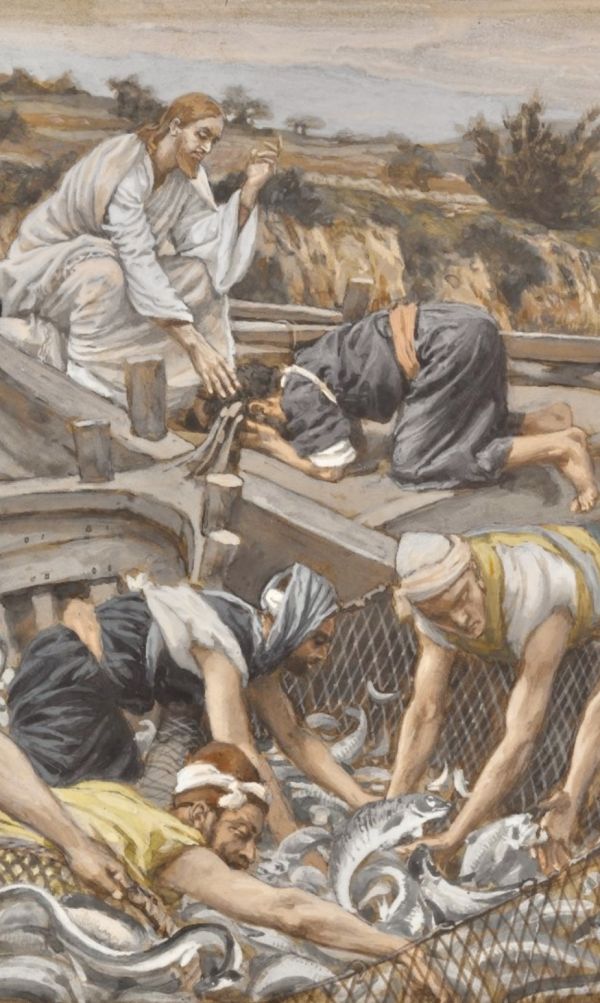‘Fishing’ to life. Weekday Attraction and attention
(Lk 5:1-11)
The episode of the Call of the disciples in Lk indicates the attraction of the Jesus Word - which acts in us, as a sort of eminent Self.
In the relationship of Faith, friendship and spousal trust become more decisive than what the common mentality and normal beliefs suggest to the lower self.
Therefore, those who lead the Church must move away from the "shore" that they know, and have the obligation to lead «into the depths» (v.4) even of the waves.
In the Semitic culture the sea is a symbol of chaos, death, the demonic, the forces contrary to life. It’s the context in which one drowns.
The Mission is «to bring out alive» (v.10) men overwhelmed by putrid sewage, submerged by impetuous waves; dragged to the bottom, to abysmal depths, by the violence of inhuman forces.
The Greek verb does not indicate «to fish» but rather «to capture alive», «take to keep alive», therefore «bring to life»: recover to the light, to the breath; being lifted up from polluted and suffocating depths.
Carrying on the work of the Master means helping people involved in deadly contexts, overwhelmed by eddies and waves that drag them down, so that they can dive into a water that is no longer cloudy, but healthy.
Work that is configured in the plural synergy of the churches, because none of them can be complete on its own (v.7).
Despite the uncertainties and the perhaps unsuitable hour, believing that the Word of Christ can accomplish the impossible is worth more than skill and opinion.
Ready or not, that Logos will make happen what it says.
Here is the manifestation of the strength and action of the Faith, not of common logic - when the Appeal of God becomes decisive in the choices.
A Call that bursts into chaos, with an humanizing charge and total novelty: it allows another power to enter the world; discreet, but which does what says.
Here the solution of problems does not deny the human capacity, but rather tries to make it speak - in the discomforts of all, in listening to the symptoms, in giving him full voice: they are spies who already know in themselves what’s wrong (v.8).
Thus involved, we will understand why the Lord does not disdain the extravagances of transgressives.
If even for us every day seems the same, by inserting this non-conformist Novelty of Light into frustrations and fatigue, we will breathe and make any work clear, marked and fruitful.
We will understand the vocation of Jesus, who teaches in every place and to each one - making inexplicable recoveries.
From «Master» (v.5) to «Lord» (v.8): the inner Friend becomes a presence, an intimate relationship, a system of recognition and self-esteem; support not external, and trampoline.
Principle and Engine of Peace, fullness of being, recklessness and following (vv. 10-11) - therefore Announcement, imagination, incisiveness and conciliation.
Without effort, we will be able to slip away the opinions conditioning ‘nature’ and the Call itself.
To internalize and live the message:
What was the impulse that pressed you, and gave you fruit?
What has been your experience of expanded perspectives on the world, and inexplicable recovery?
Do you believe that all this can also happen in the time of the global crisis?
[5th Sunday in O.T. (year C), February 9, 2025]












